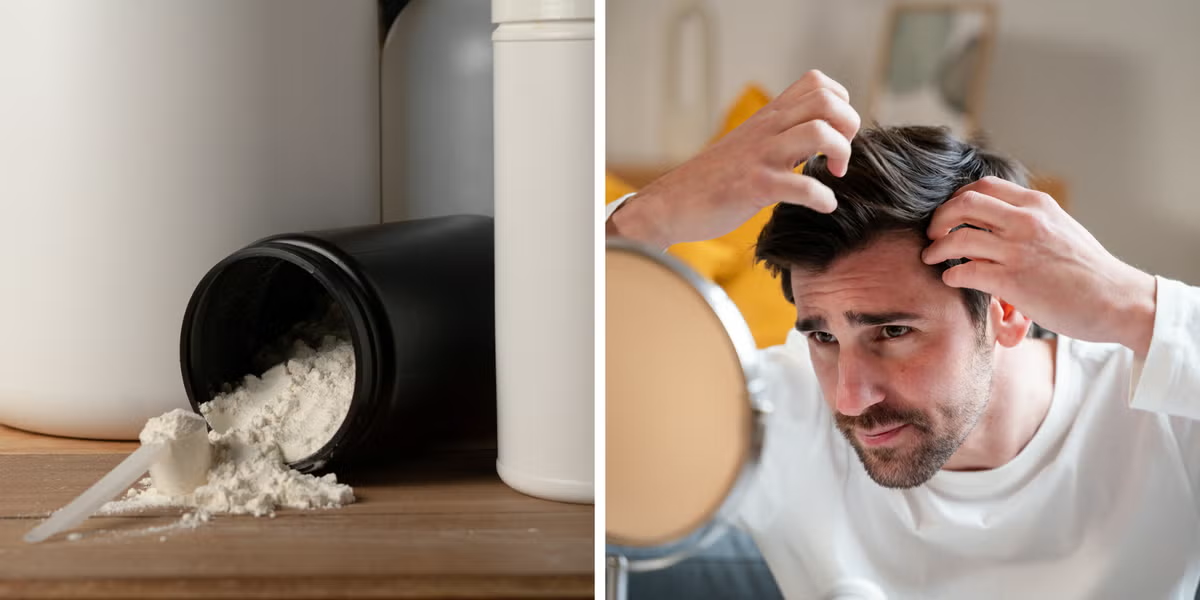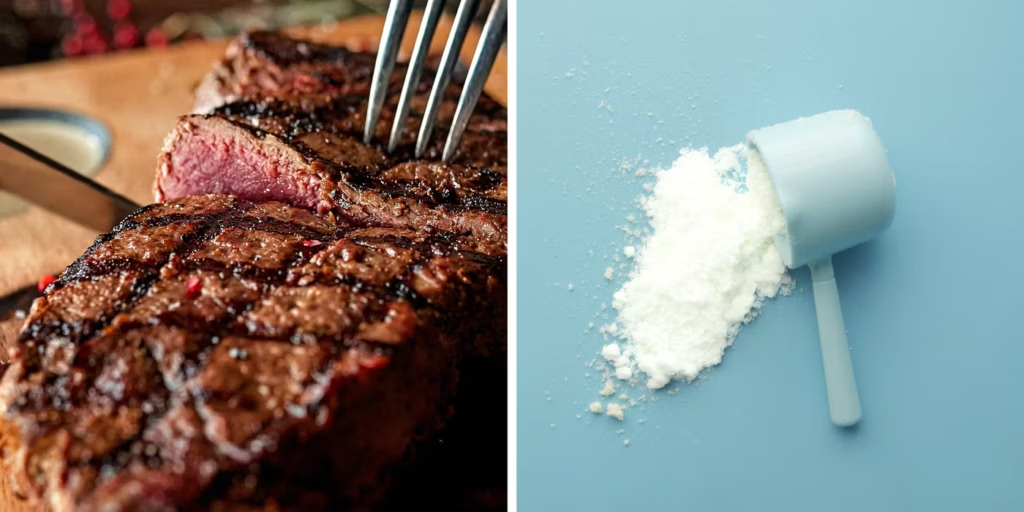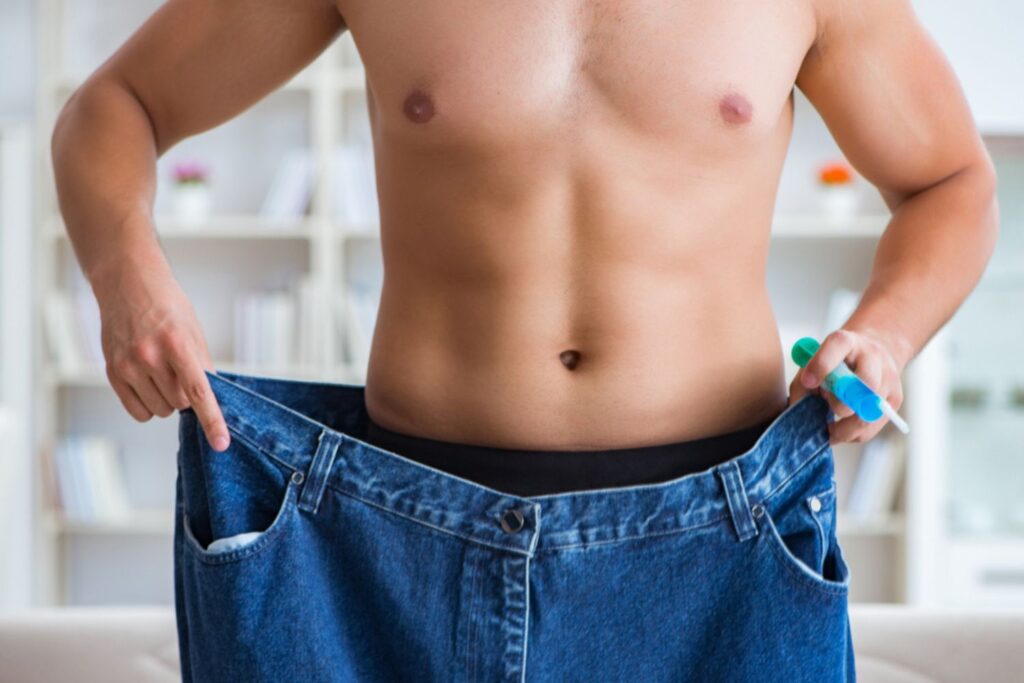ACCORDING TO A new study published in the Journal of the International Society of Sports Nutrition – the first to directly assess hair follicle health following creatine supplementation – creatine does not contribute to hair loss.
These days, you can’t scroll through social media without seeing somebody discussing creatine. It’s one of the most popular supplements on the market. But, despite fitfluencers’ rave reviews about its positive effects on muscle strength, lean tissue and general recovery, creatine still gets a bad rep when it comes to one thing: alleged hair loss.
Why do some people think creatine causes hair loss?
It all started back in 2009 with a single research paper published in the Clinical Journal of Sports Medicine. The study explored how creatine monohydrate supplementation affected dihydrotestosterone – DHT – to testosterone ratio in 20 male rugby players. Derived from testosterone, DHT’s effects are strictly androgenic as it can’t be converted to oestrogen. Although it can stimulate hair growth in other areas of the body (e.g. beard, chest or pubic region), DHT binds to androgen receptors in hair follicles on the scalp, potentially causing the follicles to shrink and sometimes stopping them from producing hair completely.
The rugby players creatine loaded for seven days (25g/day creatine with 25g/day glucose) before taking a maintenance dose of 5g/day creatine with 25 g/day glucose. While serum testosterone levels didn’t change, researchers found that DHT increased by 56% after 7 days of creatine loading and remained 40% above baseline after 14 days maintenance. The DHT:T ratio also increased by 36% after seven days of creatine supplementation and remained elevated by 22% after the maintenance dose.
While this research has been referred to on social media as evidence that creatine does cause hair loss, information has been left out along the way. As the new study notes, while DHT levels increased, they remained within the normal range for healthy adult males.
In a TikTok video discussing the 2009 study, Dr Idris Mughal, an NHS Doctor with a master’s in nutritional research, said: ‘For the sake of argument, let’s just say that study was replicated ten more times – even if creatine increases DHT levels, it’s unlikely the increase will cause further hair loss beyond what is expected otherwise.’
What did the new study find?
In the same video, Dr Mughal added that while a couple of studies had identified an increase in testosterone when supplementing creatine, ‘over a dozen studies have shown no effect on testosterone levels. So, if testosterone levels don’t go up, then DHT won’t either’. Crucially, he pointed out, no studies at that point had directly tested hair loss.
That’s what makes this new study unique. In a 12-week randomised control trial, researchers studied 38 resistance-trained males. They were randomly assigned to a creatine monohydrate (5 g/day) or placebo (5 g maltodextrin/day) group. Participants continued with their normal diets and training, and the researchers collected both blood-related and hair health data to determine how 12 weeks of creatine supplementation affected androgen levels and hair follicle health.
The result? No significant differences in DHT levels, DHT-to-testosterone ratio, or hair growth parameters were identified between the creatine and placebo groups.
Bottom line
A randomised, double-blind study, the research was pretty rigorous – and as the first study to directly test the effects of creatine on hair loss, it’s a significant addition to what is a constantly growing body of research.
It’s also not to say anecdotal reports of hair loss while supplementing with creatine aren’t valid, it might just be that there are other factors at play, including genetic predisposition or other conditions known to influence hair loss, such as alopecia areata or thyroid disorders.
It’s always worth checking in with your doctor or nutritionist if you’re experiencing any new symptoms. What works for one person doesn’t always work for someone else.
This article originally appeared on Men’s Health UK.
Related:
10 surprising, science-backed benefits of creatine
Creatine can boost the benefits of therapy in treating depression















